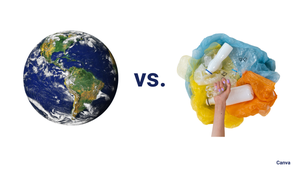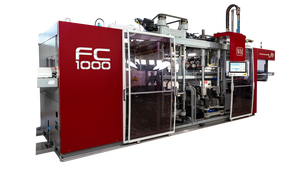Ending the joint venture they formed in October 2007, Cargill (Minneapolis, MN) has acquired for an undisclosed price the 50% of the NatureWorks bioplastic supply venture that had been owned by Japanese conglomerate Teijin Ltd. NatureWorks markets its materials, derived from plant starch, under the Ingeo brand name.
July 1, 2009
While releases from both firms state the parting was done on a friendly basis and the companies intend to continue close relations with regards to bioplastics, Teijin also said it intends to focus its own bioplastic development effort on a material, Biofront, which it introduced in 2007. Whereas Ingeo plastics to now see use almost exclusively in packaging applications, the Biofront materials are said by Teijin to overcome the limitations in terms of heat resistance and strength that have slowed market acceptance in technical applications for many other plastics derived form renewable resources. Biofront has a melting point of 210ºC and is being marketed for consumer goods, automotive, and soon also for electrical/electronics applications. The most recent product application is a car seat fabric made 100% of Biofront, currently in use on the Mazda Premacy Hydrogen RE Hybrid vehicle that Mazda Motor Corp. began leasing in March 2009. Now Teijin is developing a resin for heat-resistant automobile interior trim applications as well as injection molding grades for pillar covers and center console panels.
However, as reported here recently, NatureWorks’ Blair, Nebraska facility for Ingeo plastics only last week came online with double its initial capacity, bringing it to a nameplate of 280,000 tons/yr. Significantly, company officials said the capacity increase also will free capacity for the firm to speed its development of high-heat-resistant Ingeo grades, which clearly would be competitive to the Biofront material developed at Teijin.
The ownership transfer will not affect day-to-day operations at NatureWorks, with its CEO Marc Verbruggen remaining in charge. NatureWorks claims its plant is the only bioplastics facility with the economies of scale needed to compete with traditional petroleum-based plastics. “We like our position right now,” said Verbruggen in a statement. “While the economic downturn slowed sales growth, we still show growth, which can't be said of many conventional materials today. Sales have notably rebounded since January—a clear demonstration that the Ingeo product traits and environmental advantages are important to customers, even in times of lower oil prices.” NatureWorks announced earlier this year that it is considering opening a second facility, likely in Europe. In its fiscal year that ended March 31, 2009, Teijin announced its biggest-ever net loss of ¥42.96 billion, and the company has been taking steps across its broad portfolio to lower expenses and increase its cash flow. A Teijin spokeswoman contacted by PlasticsToday said the company would not reveal whether it had received more for its NatureWorks’ share than it originally paid for it.
Teijin is active in five main fields: synthetic fibers; films and plastics; pharmaceuticals and home healthcare; trading and retail; and IT and new products. Teijin currently operates a Biofront pilot plant with an annual capacity of 200 tons. In summer 2008, it acquired Toyota Motor Corporation’s PLA demonstration plant with an approximate 1000-ton/yr capacity. A new facility is expected to be manufacturing Biofront by later this summer; the production capacity of this new facility is not confirmed yet. Activities are underway to complete a system for mass-producing the material at the 5000-ton/yr level in 2011, according to a Teijin spokesperson. —[email protected]
About the Author(s)
You May Also Like


